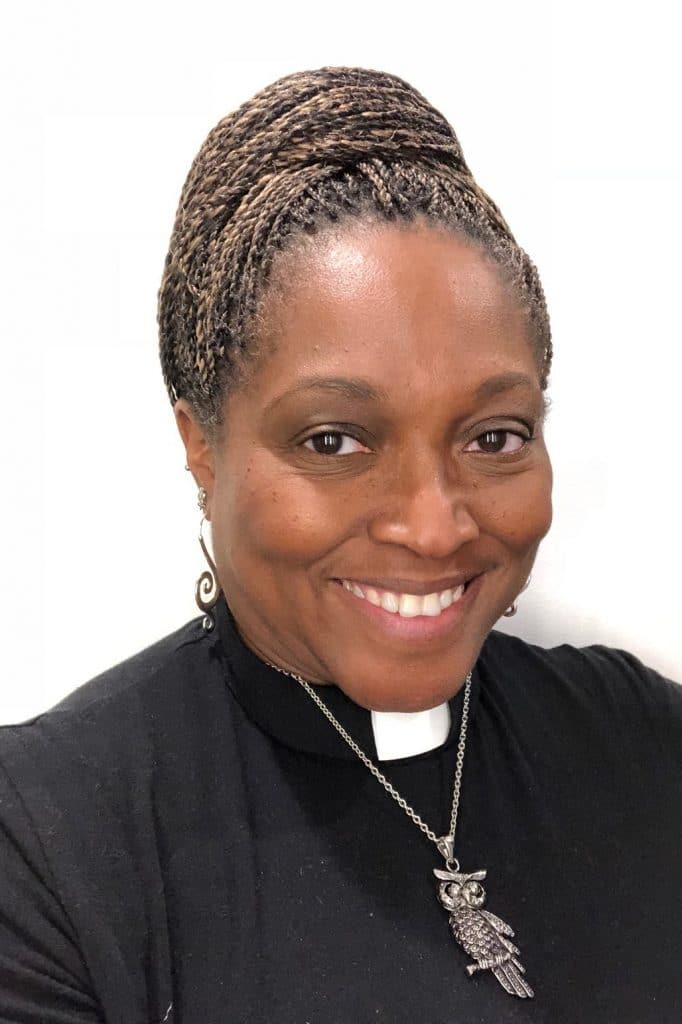‘Women’s Bodies are not battlefields’
Expanding Our Advocacy for Womxn Rights
One of the items that continues to be very popular at UCC General Synods are buttons. In the UCC, we have tons of buttons that come with justice messages that say a lot in very few words. Buttons provide clear opinions on a variety of subjects. I have always loved the clever ways in which a mere few words are used on a small surface to convey deep and even thought-provoking messages. We used to have lots of buttons that related to women and one of my favorites was a square red button which read: Women’s bodies are not battlefields.
While the context for this button was born out of the quest for reproductive rights, the meaning of this button continues to expand for me in the contemporary conversations about women’s justice, gender justice, and transgender rights. The bodies we occupy have become battlefields; a battle that is accompanied by the challenges posed when we choose to name ourselves beyond those very bodies we occupy. And yet, in the church, we continue to name and say: All are made in the image of God. In Genesis 1:27 we read: “So God created humans in his image, in the image of God he created them.” While the latter part of this text has been weaponized against the LGBTQIA+ community, the text affirms the imago dei – all persons are made in the image of the Divine.
March is Women’s History Month, an intentional time on the calendar to observe and celebrate the contributions of women in history and currently. On March 8, we will celebrate International Women’s Day and the first full week in March, we will celebrate UCC Women’s Week. As I reflected on these occasions and opportunities to raise awareness and advocate for the rights of women, I am reminded that the rights of women are linked to those of transgender and nonbinary persons. The need to be expansive about the rights of women, invites us to be expansive in the options we have for use of words.
Alternative spellings of womyn and womxn are a part of our lexicon and have been for some time. The use of womyn dates back to the 1970s with pushback to this alternate spelling coming with the critique that, while it no longer included “men” and “man,” it was a term used mainly by and for White women. The alternative use of womxn aimed to include women of color, transgender and nonbinary persons.
Our attention to the related justice issues of women of color, transgender and nonbinary persons is a priority for the church. Ending violence against women must be a priority and this includes the violence experienced by transgender women. The economic disparities present for womxn continues to affect the ability for flourishing. As people of faith and followers of Christ, we can raise our voices to make a difference for womxn around the world.
Rev. Dr. Karen Georgia A. Thompson
The truth is that womxn’s bodies are battlefields with increased legislation intending to roll back the rights of many. The call before us is to expand our advocacy, our use of language, and our awareness this March as we observe Women’s History Month. The human rights of womxn around the world are to be promoted and protected.

The Rev. Karen Georgia Thompson, General Minister and President, United Church of Christ
Related News
Growing Weary
In December 1964 during a speech in Harlem, Fannie Lou Hamer declared: “And you can always...
Read MorePlanning for Earth Month: Resources for Congregations
April is Earth Month, and for congregations, it can be a great time to further discern how...
Read MoreBodily Autonomy Means Every-BODY
Advocacy and Action for Women's and Gender Justice Local events stir thoughts and...
Read More

